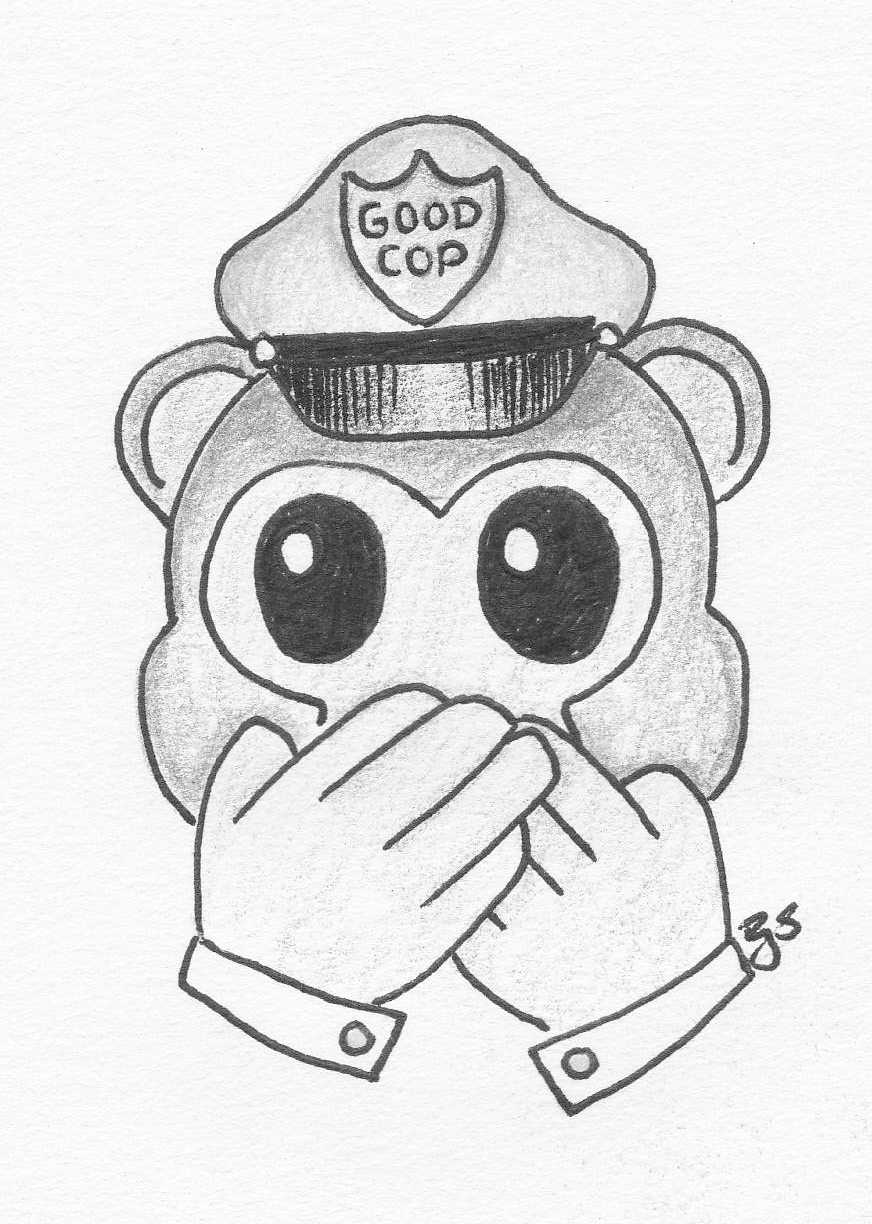By Jonathan Van Niel
Corruption has long plagued law enforcement, and thanks to the “blue wall of silence,” outcr y against misconduct from officers who abide by the oath they swore to uphold has been virtually nonexistent.
y against misconduct from officers who abide by the oath they swore to uphold has been virtually nonexistent.
Police loyalty is both impressive and troubling.
On one hand, it is commendable that an officer is willing to lay his or her life on the line for a partner.
On the other hand, that same devotion can lead to covering up another officer’s indiscretions.
In spite of the bonds forged within this brotherhood, police officers are still autonomous, and officers who engage in misconduct ought to be reported by those who serve to protect the public.
But such criticism and ridicule often goes unheard.
Why is this? Surely not every officer allows servility to the shield to compromise their moral responsibilities and personal integrity. Where are the whistleblowers?
Unfortunately, some police officers are afraid of facing the negative consequences of speaking out against their constituents, as Bill Berkowitz noted in an op-ed for Truthout:
“Whistleblowing by police officers is all too rare and, in those rare cases when police officers do display the courage and integrity necessary to report misconduct by their fellow officers, they are often faced with being ostracized, intimidation, firing, and/or threats to their safety on the job.”
Joseph Crystal, a former Baltimore Police Detective, was one of the unfortunate individuals to face such consequences.
Crystal witnessed an off-duty cop brutally beat a handcuffed suspect, saw a detective lie in a formal police report to cover it up, and watched his sergeant approve it.
Appalled by the actions of his colleagues, Crystal broke the “blue wall” and reported this misconduct.
In return, he was labeled a rat within the Baltimore Police Department.
According to a Department of Justice investigation, a sergeant repeatedly left pictures of cheese on Crystal’s desk. In addition, Crystal would not receive backup during dangerous operations. After discovering a dead rodent on his car’s windshield, Crystal resigned.
While Baltimore’s Board of Estimates awarded Crystal a $42,000 settlement after he claimed that the department failed to protect him after reporting misconduct, no officers were charged with any crimes.
According to Baltimore City Solicitor George Nilson, investigations failed to identify “any of the people who did what Crystal said was done to him.”
The reason investigations of this nature fail to lead to charges is because of the resilience of the “blue wall.” When a police department conducts an investigation into its own officers, it becomes a conflict of interest, meaning any damning evidence discovered during an internal investigation can easily be wiped away. We cannot expect police officers to be held accountable when there is an infrastructure designed to protect them from prosecution.
A cornerstone of that infrastructure is an officer’s ability to have their disciplinary records legally expunged in many jurisdictions.
In Baton Rouge, La., for example, a sustained complaint can be stricken from an officer’s record after just 18 months. Furthermore, in Mesa, Ariz., officers are encouraged by superiors to get rid of past blemishes.
“I don’t want anybody to have to relive a problem that has already been adjudicated … that they’ve already been disciplined for … that has already seen scrutiny in the public eye. So purge your files according to policy. Make sure that the things you don’t want in there aren’t in there,” said Mesa Police Chief Frank Milstead in a video released to the Mesa Police Department in 2013.
Another disturbing option for officers is that they can resign and transfer to another department while under investigation for misconduct.
In the case of the fatal shooting of Tamir Rice in 2014, the Cleveland officer responsible was previously deemed unfit for duty by another police agency, and was in the process of being fired before transferring.
Police infrastructure is designed to protect those that serve opposed to serving those officers swear to protect. The “blue wall of silence” is merely a symptom of that dysfunction. If we are to hold police accountable for misconduct the same way any other citizen is responsible for their actions, police culture must be reformed.
Public outrage regarding cases of police misconduct is powerful, but that same outrage must be shared by police officers as well. For one to be complacent in not speaking out against wrongdoing is to be complicit in wrongdoing.













